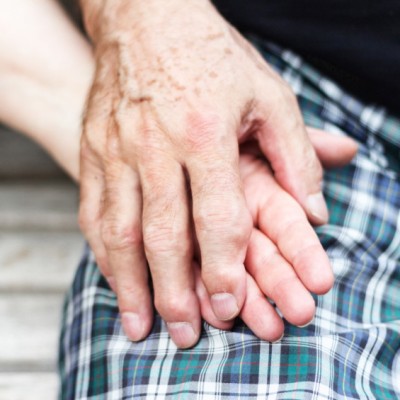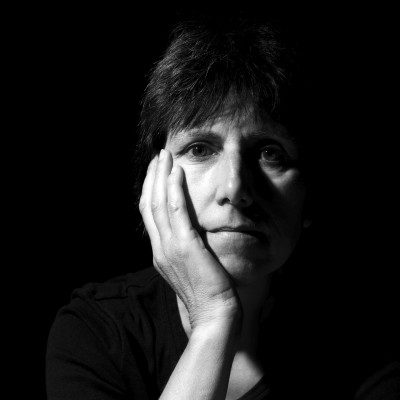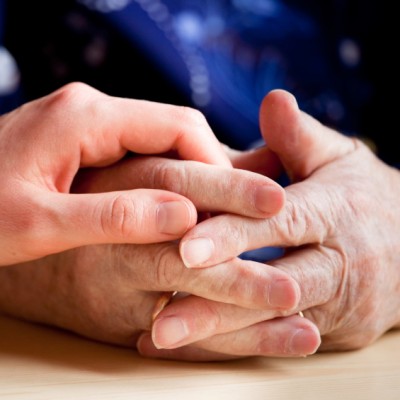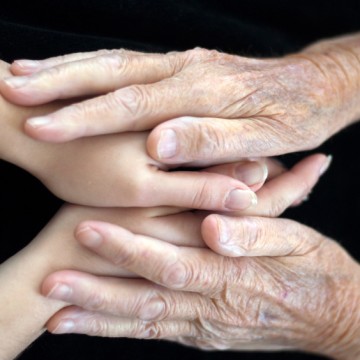slides: In Plain Sight: What You May Not Know About Planning to Die in Portland





 Email to a friend
Permalink
Email to a friend
Permalink
Tuesday, February 17, 2015
Becki Saltzman, GoLocalPDX MINDSETTER™
The things that make Portland the goofy, lovable, quirk of a city are almost nauseatingly well documented at this point: What we don’t eat, what we drink, what we wear, what we ride, what we don’t pump, how we don’t work, and what we mean when say what we say. However, before
Brittany Maynard moved here with her family from California, we hadn’t really been appropriately credited with being a great place to die.
See Slides Below: 10 Things You May Not Have Known About Planning Your Death in Portland
About the time that (thanks to Tanya Harding) Portlanders uniquely cringed when Nancy Kerrigan screeched the reasonable but annoying question, “Why Me?!” we were also voting to approve the nation’s first law that would support dying with dignity. In 1997, Oregon’s Death With Dignity Law went into effect, and while I had been curious about Oregon’s unique law, I had never really explored it until my mom asked me to. She, like over 79% of the program participants, was diagnosed with a malignant tumor and wanted to explore the option of controlling how she died.

Brittany Maynard
Ultimately my mom decided that being able to choose the exact day to end her life was more of a hassle than she was willing to deal with. I had set aside what I learned in the months leading up to my mom’s death until the lovely, brave face of Brittany Maynard made international headlines. I wondered how Brittany’s choice to die with dignity had impacted
Compassion and Choices, the organization committed to helping people have the best death possible.
Following my curiosity is how I sat down to chat with Matt Whitaker, Oregon’s outreach coordinator, in Compassion and Choices’ Northeast Portland offices. He’s an amazing guy.
As a control freak, no matter how much I wish I could control more aspects of my life, I know deep down that I can only do the best that I can do. The shroud of uncertainty disguises the certainty of death so that if we squint just so, and kind of ignore it, we almost believe that just for us the certainty is not real.
In our constant search for and desire to try to create a wonderful life, I often wonder why we give up so easily on trying to create an elegant death.
Additional resources:
Get your free Good To Go Toolkit here.
Good to Go Resource Guide.
Call 800.247.7421 for an end of life consultation program.
A graduate degree in behavioral science, three generations of Portland blood in her veins, 20 years as a real-estate broker, and a lifetime of delving into other people’s business has caused Becki Saltzman’s severe curiosity disorder. She is the author of Arousing the Buy Curious: Real Estate Pillow Talk for Patrons and Professionals and The Living Curiously Method (launching in 2015) and founder of Oomau Media. She looks forward to expanding membership in the Tribe of the Curious.
You can also follow her on Twitter and Facebook…or not.
Related Slideshow: 10 Things You May Not Have Known About Planning Your Death in Portland
In Case You’re Curious…
Ten things you may not have known about planning your death in Portland.

Prev
Next
10.
To take advantage of Oregon’s Death With Dignity program is not easy, and it’s not suited for everyone. For those who believe that their life and death are divinely determined, it may not be the best program. It seems well suited for control freaks who wish to give as much thought to, and maintain as much control over, their death as they do their lives. The demographic for Death With Dignity participants skews toward the more highly educated and wealthier. Over 46% of those who have died under the Death With Dignity Act had at least a bachelor’s degree. 63% of participants had private insurance.

Prev
Next
9.
There are strict criteria to qualify for the Death With Dignity program in Oregon. A participant must be at least 18-years old, be an Oregon resident, have the capability of making and communicating health care decisions, and cannot have more than 6 months to live. Eligibility must be determined by at least two physicians, and the lethal prescription comes with a 15-day waiting period. At the point of taking the prescription, the patient must be totally mentally competent. A participant can change their mind at any time, and over 1/3 of patients who obtain the necessary prescription do not use it.

Prev
Next
8.
There are a lot of myths and misconceptions about Death With Dignity. It is not euthanasia, which is when a physician administers a lethal dose or injection. It is not terminal sedation, which is the practice of sedating a terminally ill, competent patient to the point of unconsciousness. It is not the same as a patient withholding life-sustaining treatments like medicine, food or water; a patient withholding their own treatment is perfectly legal in every state, while Death With Dignity is not. It is not the same as administering pain medication that may speed up the death process. Death With Dignity is a very specific and patient-driven program that requires the competent, terminal patient to proactively plan and execute their inevitable death.

Prev
Next
7.
Opponents of dignified death programs worry that terminally ill patients may be pressured to end their lives in order to save money or avoid being a burden. I’m not sure how the existence of these programs would facilitate eliminating expensive or burdensome patients because it is the farthest thing from a strategically placed pillow. Physicians, friends, and family members cannot legally drive this process even if they wanted to.

Prev
Next
6.
Two other states, Washington and Vermont, have similar Death with Dignity state laws. Montana and New Mexico have laws that are medically directed versus Oregon, Washington, and Vermont’s state directed programs. This means that there is not a regulatory framework for doctor-assisted suicide in Montana or New Mexico, but doctors are shielded from prosecution as long as they have the patient’s request in writing. Oregon Health Authority oversees Oregon’s implementation and compliance with the Death With Dignity Act.

Prev
Next
5.
One of the many myths surrounding our Death With Dignity is that Oregon will become a place where boatloads of terminally ill folk come to die. For the nearly 20 years since this program has been in effect, this has not happened. However, I couldn’t help but wonder what a tourist industry that explores how to create a dignified death might look like, and whether or not it may work well with our current tourist industry that focuses on how to create a wonderful life.

Prev
Next
4.
Compassion and Choices can help navigate the myriad of end-of-life options long before the inevitable seems inevitable. It is never too soon to prepare an Advance Directive, for example. These are the documents that indicate your preferences relating to your future health care. They generally include what kind of treatment you wish to receive, when you wish to stop treatment, and whether or not you wish to refuse life-sustaining treatment. It may include a durable power of attorney so you can assign someone to act on your behalf concerning matters of your health care when you can’t act for yourself. You can write whatever you want on the directive and you can and should continuously change and update the document. It’s meant to be a living document to provide up-to-date instruction for how you want to conclude your life. Given that a conclusion to life is a sure thing, if you’re a planner, this may be something to consider, but if you hide this directive away in a secret space so one can find it, it’s worthless because…no one will find it.

Prev
Next
3.
POLST/MOLST (Physician/Medical Order for Life-Sustaining Treatment) forms are not the same as advance directives. These forms are generally obtained when one is terminally ill or really elderly and frail. They are medical orders issued by medical personnel. Your physician cannot be forced to participate with your POLST/MOLST and given the nature of the forms, you probably won’t be in the best position to challenge them to do so, but these are good directives to have when the time is right. Grab a form here. A Do Not Resuscitate (DNR) instructs health care providers not to attempt to resuscitate you if your heart stops in a medical facility. Display it prominently if you mean for it to be taken seriously. Hide it away if you’re not so sure.

Prev
Next
2.
If you are at all interested in having the option of controlling your death, do not wait until you are pretty sure you know how and when you will die to begin preparation. It’s never too early to ask your doctor if she will support you in taking advantage of the Death With Dignity Law. If your doctor agrees to support you, you will need to ask whether she will be willing to write a prescription. Theoretical support is not the same as authorizing and prescribing the necessary medication. If this is an important option for you to have, consider making this a criterion for choosing your doctor.

Prev
Next
1.
Even if your doctor would theoretically support your right to die with dignity, there are other reasons why some hospitals do not allow their doctors to participate in the program. For example, in small towns where the only hospital enjoys a tax-exempt status and yet is still subject to moral restrictions imposed by Catholic bishops, orchestrating an elegant death may not be an option because of a lack of physicians who are allowed to participate. This position may not be changing anytime soon as Pope Francis, made the churches’ position clear when he condemned Brittany Maynard as participating in a “sin against God, The Creator.” He is not a fan of death with dignity and believes in a “redemptive quality of suffering.” Cacao.
Related Articles
Enjoy this post? Share it with others.





 Email to a friend
Permalink
Email to a friend
Permalink



























 Delivered Free Every
Delivered Free Every
Follow us on Pinterest Google + Facebook Twitter See It Read It